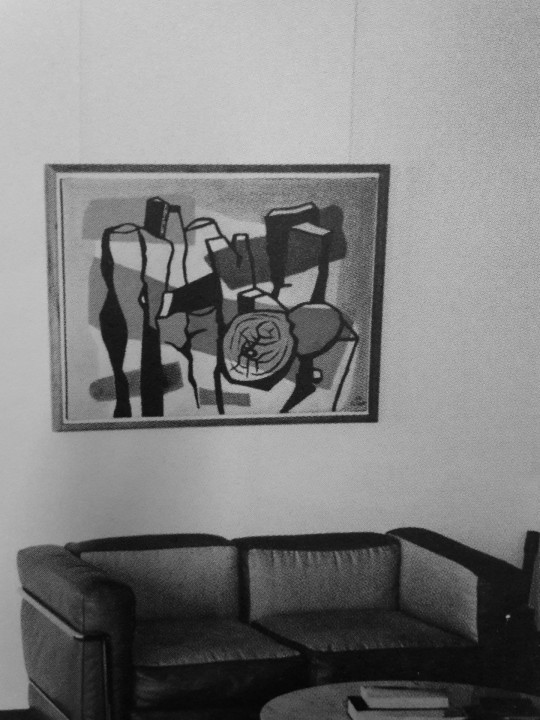Photo

Roberto Bolaño’s board games by Patti Smith.
“Looking up from the hole I was perceptually burning, I spotted Ernest talking to Jesús, who seemed extremely agitated. Ernest rested his hand on his friend’s shoulder and Jesús calmed, crossed himself and abruptly left. Ernest sat down and filled me in. Jesús and the blonde were heading to the Greyhound station in downtown Los Angeles, two days and nineteen hours on a bus to Miami, then a rent-a-car to St. Petersburg.
—Jesús seemed out of sorts.
—Muriel has a lot of luggage.
The blonde had a name.
—Did you return her lashes? I asked.
—A gull swooped down and took them, most likely they’re part of a nest.
I avoided his gaze, so as not to catch him in a lie. In my mind’s eye, I could see them quite plainly, without the slightest effort, wrapped in the same blob of tissue atop an old bureau beneath a painting of a lighthouse engulfed in badly executed mist. I noticed the book he’d set on the table, Pascal’s Arithmetical Triangle.
—Are you reading that? I asked.
—You don’t read books like this, you absorb them.
It made perfect sense to me, and I was certain he had a whole line of regressions planned, if only to divert me from the subject of bonfires, but I impulsively threw out my own line, just to shift the angles.
—You know, I was in Blanes some years back.
He looked at me quizzically: obviously he couldn’t sense where I was going with this.
—Blanes?
— Yeah. It’s a sixties-style beach town in Catalonia where Bolaño lived till his death. It’s where he wrote 2666.
Ernest was suddenly very serious. His love of Roberto Bolaño was something one could almost touch.
—It’s hard to imagine what it must have been like for him, racing toward the finish line. He mastered the capacity that few can attain, like Faulkner or Proust or Stephen King, the ability to write and think simultaneously. The daily practice, he called it.
—The daily practice, I repeated.
—He laid it out in the opening pages of The Third Reich. Have you read it?
—I stopped reading midway, it made me uneasy.
—Why? he said, leaning in. What did you think was going to happen?
—I don’t know, something bad, something bred of a misunderstanding about to go out of control, like in The Prince and the Pauper.
—You’re talking dread.
—Yes, I suppose.
He glanced at my open notebook.
—Does your writing evoke that thing? That uneasiness?
—No. Except for maybe a comic uneasiness.
—The Third Reich. It’s just the name of a board game. He was obsessed with them. A game is just a game.
—Yeah, I guess. You know, I have seen his games.
Ernest lit up like a pinball machine when everything goes the player’s way.
—You have seen them? Bolaño’s games!
—Yes, when I was in Blanes, I visited his family. The games were on a shelf in a closet. I took a photograph of them, though maybe I shouldn’t have.
—Can I see the picture? he asked.
— Sure, I said. You can have it, but it may take me a while to find it.
He picked up his book, the one with a red and yellow cover heralding the triangle. He said he had somewhere to go, somewhere important. He wrote an address on the back of a napkin. We agreed to meet the following afternoon.
—And don’t forget the picture.
Te Mana Café Voltaire Street. two o’clock. I folded the napkin and motioned for another coffee. Unfortunately, I had impulsively promised to give the picture to him in spite of the fact it was somewhere in Manhattan and I hadn’t the slightest notion where I had put it, what book I may have slipped it into, or what archival box I may have tossed it in, among hundreds of inconsequential shots. Black-and-white Polaroids of streets and architecture and the façades of hotels I thought I would always remember yet now were impossible to identify.
I didn’t tell Ernest, but in truth, I’d had a sick feeling having accidently encountered Bolaño’s games. Not bad sick but time-fracture sick. The closet shelf had contained a world of energy, the concentration once invested in those stacks of games still potent, manifesting as a hyper-objectified sense, observing every move I made.”
—from Year of the Monkey, by Patti Smith
71 notes
·
View notes
Photo

Alison y Peter Smithson. Sede de The Economist (Londres, 1959-64)
132 notes
·
View notes
Photo

Charlotte Perriand, Maurice Jardot’s apartment, Paris
97 notes
·
View notes
Text

Arthur Tress, from his early travels 1963-66
172 notes
·
View notes
Text


Nirvana German shows in 1991
August 24 → Cologne
November 10 → Berlin
November 11 → Hamburg
November 12 → Frankfurt
November 13 → Munich
674 notes
·
View notes
Photo

Smilin’ Bob Dylan goes electric on the Fender bass, 1965, by Don Hunstein, via Bob’s official Instagram
820 notes
·
View notes
Photo




“And she turned around and took me by the hand And said: I’ve lost control again”
This is Joy Division’s first and last national TV appearance. The song is She’s Lost Control, from their debut album Unknown Pleasures, released on Factory Records in 1979.
3K notes
·
View notes
Photo

Men laying under cherry blossoms. From the photobook ‘Kyo no Miyako’, Japan, 1960-70
by Seiryu Inoue
17K notes
·
View notes








